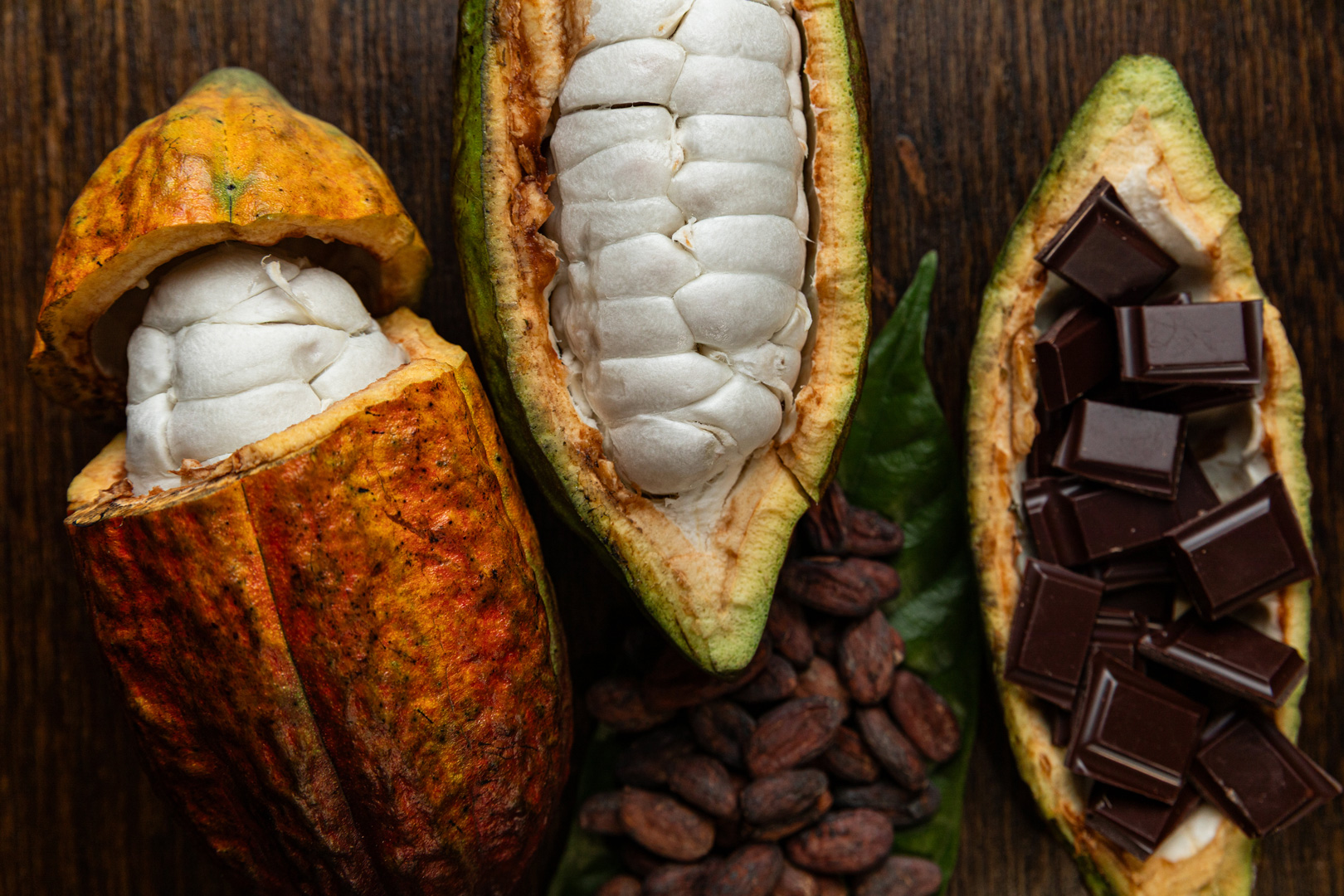

University of Nottingham research unlocks microbial secrets behind chocolate’s finest flavors
The allure of fine chocolate has always been rooted in flavor. Now, researchers at the University of Nottingham’s School of Biosciences believe they have uncovered a way to give chocolate producers unprecedented control over that flavor, potentially transforming the industry’s approach to fermentation.
The study, published in Nature Microbiology, identifies the key factors that influence the flavor of chocolate during the fermentation of cocoa beans. By mapping the interaction between bean temperature, pH, and microbial communities, the scientists pinpointed the microbial species and metabolic traits most strongly associated with fine-flavor chocolate. Their work shows that both abiotic factors such as heat and acidity, and biotic factors like microbial composition, can be strong and consistent indicators of flavor development.
Chocolate’s quality begins with the cacao bean, which is profoundly shaped by both pre-harvest and post-harvest practices. Among the latter, fermentation stands out as the critical first step after harvest. It lays the groundwork for chocolate’s complex aromas, subtle flavor notes, and reduced bitterness.
“Fermentation is a natural, microbe-driven process that typically takes place directly on cocoa farms, where harvested beans are piled in boxes, heaps, or baskets,” said Dr David Gopaulchan, first author of the paper. “In these settings, naturally occurring bacteria and fungi from the surrounding environment break down the beans, producing key chemical compounds that underpin chocolate’s final taste and aroma. However, this spontaneous fermentation is largely uncontrolled. Farmers have little influence over which microbes dominate or how the fermentation process unfolds. As a result, fermentation, and thus the flavor and quality of the beans, varies widely between harvests, farms, regions, and countries.”
The Nottingham team set out to test whether such a variable natural process could be replicated, and ultimately controlled, in a laboratory environment. Working with Colombian farmers, they studied fermentations at source and identified the most important variables influencing flavor. With these insights, the researchers then developed a defined microbial community in the lab: a carefully curated mix of bacteria and fungi capable of replicating the key chemical and sensory outcomes of on-farm fermentations.
The results were striking. This synthetic community not only mimicked the dynamics of natural fermentations but also produced chocolate with the same fine-flavor characteristics. In effect, the researchers demonstrated that chocolate fermentation could be “domesticated” in much the same way that brewers, bakers, and cheesemakers have long used starter cultures to standardize and elevate their products.
“The discoveries we have made are really important for helping chocolate producers to be able to consistently maximise their cocoa crops as we have shown they can rely on measurable markers such as specific pH, temperature, and microbial dynamics, to reliably predict and achieve consistent flavour outcomes,” Dr Gopaulchan said.
The implications extend well beyond the academic. For farmers and chocolate makers alike, the ability to monitor and control fermentation offers the prospect of reducing inconsistency, increasing value, and producing reliably high-quality chocolate across harvests and regions. By replacing chance microbial successions with defined starter cultures, producers could ensure fine flavor outcomes are achieved every time.
More broadly, the study signals a potential paradigm shift for cocoa fermentation. Just as the introduction of controlled starter cultures revolutionized the production of beer, wine, and cheese, cocoa now appears poised for its own transformation. A process that was once largely left to the whims of nature can now be guided by data, powered by microbes, and tailored for flavor precision.
Dr Gopaulchan described the findings as laying “the foundation for a new era in chocolate production,” one in which defined microbial cultures standardize fermentation, open the door to novel flavor development, and raise chocolate quality globally.
For an industry that has long balanced artisanal tradition with modern science, the work provides a bridge between the two. Farmers in Colombia and beyond, who often rely on inherited practices and environmental conditions to shape their beans, may one day find themselves equipped with microbial starter kits designed to optimize and stabilize outcomes. For premium chocolate makers, the ability to consistently deliver fine flavor could reinforce brand reputation and justify higher prices.
The study also offers a glimpse of a broader scientific trend: the application of microbial ecology and fermentation science to foods once considered resistant to standardization. As consumer demand grows for consistent quality and unique flavors, chocolate could soon join beer, wine, and cheese as a product where microbial management is as important as raw materials.
In the end, the research underscores that great chocolate is not just about the cacao tree or the skill of the chocolatier. It begins at the microscopic level, with the interplay of bacteria, fungi, and fermentation conditions that shape the bean’s potential. By making these dynamics measurable and reproducible, the University of Nottingham team has opened the door to a more reliable, more flavorful future for chocolate
If you have any questions or would like to get in touch with us, please email info@futureofproteinproduction.com

.png)



.JPG%20(1).webp)


